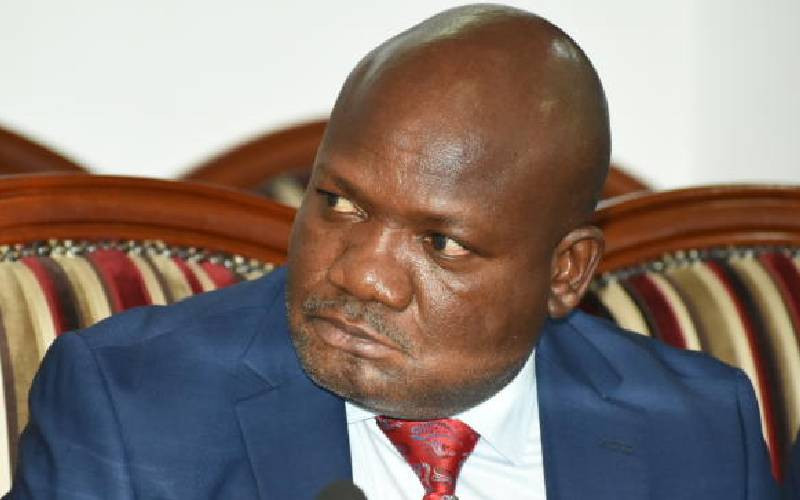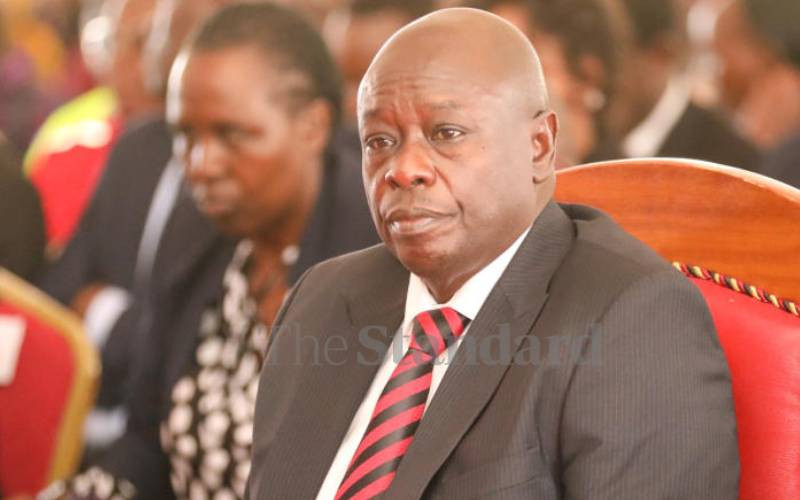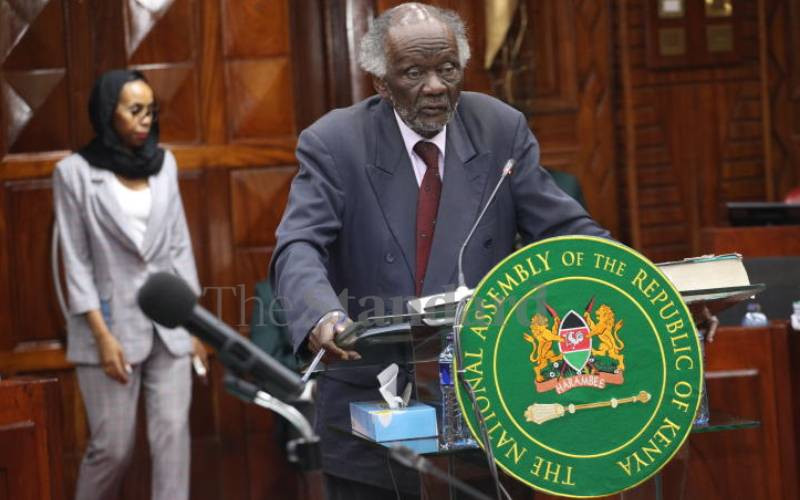Thika businessman Julius Gitau Wanyoike faked his own death last year, complete with a staged abduction. He resurfaced two months later with a cock-and-bull story which the police did not buy. Gitau was fleeing from menacing creditors- at the height of the Corona pandemic.
Criminologists refer to faking one’s death as pseudocide. Previously rare, it is slowly gaining currency as a trick for perpetrators escaping financial stress, skiving from criminal justice, runaway from family, for personal gratification or financial gain. Pseudocides, though, hardly end well.
In Gitau’s case, it later emerged that he had a Sh46 million life insurance cover, which was renewed on September 24. And what’s more- someone placed a claim on it- three days after he went missing! Gitau, 44, made his disappearance look like suicide through drowning. He left behind a purported suicide note that fueled fear among friends and relatives that he could be dead.
‘Gitau wa Mali Mali’ as he is popularly known, left the note on the dashboard of one of his trucks. The lorry was found abandoned near Blue Post flyover on September 21, when he went missing.
“Hey family. Hii maisha imenishinda. Sitaki kutafutwa na watu wasijisumbue kunitafuta niko kwa maji. Family nawapenda sana (Family, life has become unbearable for me, don’t bother looking for me, I am in the water, I love you family),” read the hand written note of the man with a successful wholesale shop in Thika.
According to experts, drowning is often meant to dash hopes of a victim ever being found. Faking drowning is the most preferred method of faking one’s death. It appears credible in the absence of a body. Gitau’s relatives had looked for him in hospitals and police stations to no avail.The insurance company from which Gitau’s Sh46 million cover was underwritten got suspicious when someone tried claiming the money three days after he went missing.
A letter from his insurer read in part: “Take note that no matter the outcome of the search for our missing client, we cannot pay out compensation as per our existing contract since there appears to exist a criminal plot to induce circumstances that can lead to making a compensation claim.”
Gitau claimed he was kidnapped, a version police doubted, suspecting the man could have been running away from creditors. The corona pandemic had led to lockdowns, curfews and with it, massive job layoffs, business closures and profits warnings, and Gitau was in the financial red as well.
“The man was just hiding in a house within Ithanga. The kidnapping tale was fiction,” Josephat Kinyua, the Murangá County police commander told The Nairobian. Playing dead is un-African and was unheard of in some communities, but current schemers have no qualms stressing their families, friends and relatives to make quick bucks.
According to Director of Criminal Investigations George Kinoti, most cases involving faked deaths are to mitigate problems, but recent reported cases are of fraudsters ‘killing’ themselves or relatives for their insurance cover.
Take the case of Dismus Bundara Waga who escorted his wife, Pamela Atieno Waga to bank the Sh5 million claim for Dismus Bundara Waga in 2005. The bank tellers at Coop Bank, Migori branch knew him-and called Fidelity Shield Insurance who sued demanding a refund for policy paid for Dismus Waga Bundara who had died in a road accident in 2004.
The case dragged until 2017 when Pamela Waga won her appeal arguing Dismus Bundara Waga was different from Dismus Waga Bundara and that her claim was for fire -not death! Then there was the hilarious Kenyan who figured overhauling diesel engines in Detroit, USA would never be the easy route to Easy Street. So he returned home and ‘died.’ He pressed for life insurance claims from the comfort of his home, complete with the obituary he had placed in a local daily.
Problem was, his fingerprints were all over the documents he sent to Detroit... including on the obituary!
Other schemers go to macabre lengths. Like the former insurance employee who was unmasked for killing his nephew to claim Sh9 million from two different insurance firms. Evans Masaku Kasyoki took insurance covers for jobless Eric Makau Musyoka who was not aware of the benefits. Masaku then planned for the kin’s murder before lodging the claims.
The two covers were for Sh10 million and Sh1 million respectively. Masaku who was later arrested and charged, had only made one premium payment before plotting Makau’s murder.
Then there was the case of Ezekiel Ochieng Ogoma who faked his own death for his wife Rachel Adhiambo Omondi to claim the Sh634, 936 compensation in 2018.
It was the couple’s second attempt at pulling the death stunt following a successful one in which Ezekiel and Rachel pocketed Sh600, 665 from a different insurance company in 2013.
Rachel claimed her husband died in an accident on the Siaya-Kisumu Road. She lodged the claim armed with a police abstract, certificate of identity from Gombe sub-location assistant chief, certificate from ‘Attending Physician’ (which was signed but not stamped) and a Claimant’s Statement. She also had a death certificate and burial permit-which was how she was caught.
The death certificate indicated ‘accident’ as cause of death. Insurance fraud investigators flagged her claim as cause of death can be loss of blood or injuries since an accident is only the event. The other red flag was the burial permit from the chief-who only issues for death via natural causes at home and not road accidents!
Stay informed. Subscribe to our newsletter
Officers at Pan African Insurance (now Sanlam) who fingered Rachel, also discovered that Ezekiel was alive since his ID number was actively withdrawing money. Searching deeper, it was discovered that Ezekiel Ogoma also had other policies. One was with Jubilee Insurance where a claim was pending. A trap was laid.
Ezekiel was informed that his claim at Jubilee had been processed, and would he care to collect it?
The Sh600,665 check Ezekiel went to collect from Jubilee accounted for his second and separate charge to defraud the insurer as Rachel had lodged claims for the same death in 2013 and was paid in 2014. They denied the charges and were released on a Sh500, 000 bond each.
Insurance fraud investigations expert Daniel Mwei told The Nairobian faking death is now a rampant trend with most cases being handled internally. Mwei blames some unscrupulous insurance and government employees of aiding the crooks in their schemes. “To be successful, the fraudsters work in cahoots with officials in the provincial administration, department of civil registration and the police,” says Mwei.
According to counseling psychologist Reverend James Mbugua, sometimes individuals resort to such unusual means to eke a living due to financial strains. “When the corrupt are left to roam scot free, some individuals become more daring and tend to engage in such vices bordering on immorality,” says Mbugua.
 The Standard Group Plc is a
multi-media organization with investments in media platforms spanning newspaper
print operations, television, radio broadcasting, digital and online services. The
Standard Group is recognized as a leading multi-media house in Kenya with a key
influence in matters of national and international interest.
The Standard Group Plc is a
multi-media organization with investments in media platforms spanning newspaper
print operations, television, radio broadcasting, digital and online services. The
Standard Group is recognized as a leading multi-media house in Kenya with a key
influence in matters of national and international interest.
 The Standard Group Plc is a
multi-media organization with investments in media platforms spanning newspaper
print operations, television, radio broadcasting, digital and online services. The
Standard Group is recognized as a leading multi-media house in Kenya with a key
influence in matters of national and international interest.
The Standard Group Plc is a
multi-media organization with investments in media platforms spanning newspaper
print operations, television, radio broadcasting, digital and online services. The
Standard Group is recognized as a leading multi-media house in Kenya with a key
influence in matters of national and international interest.





